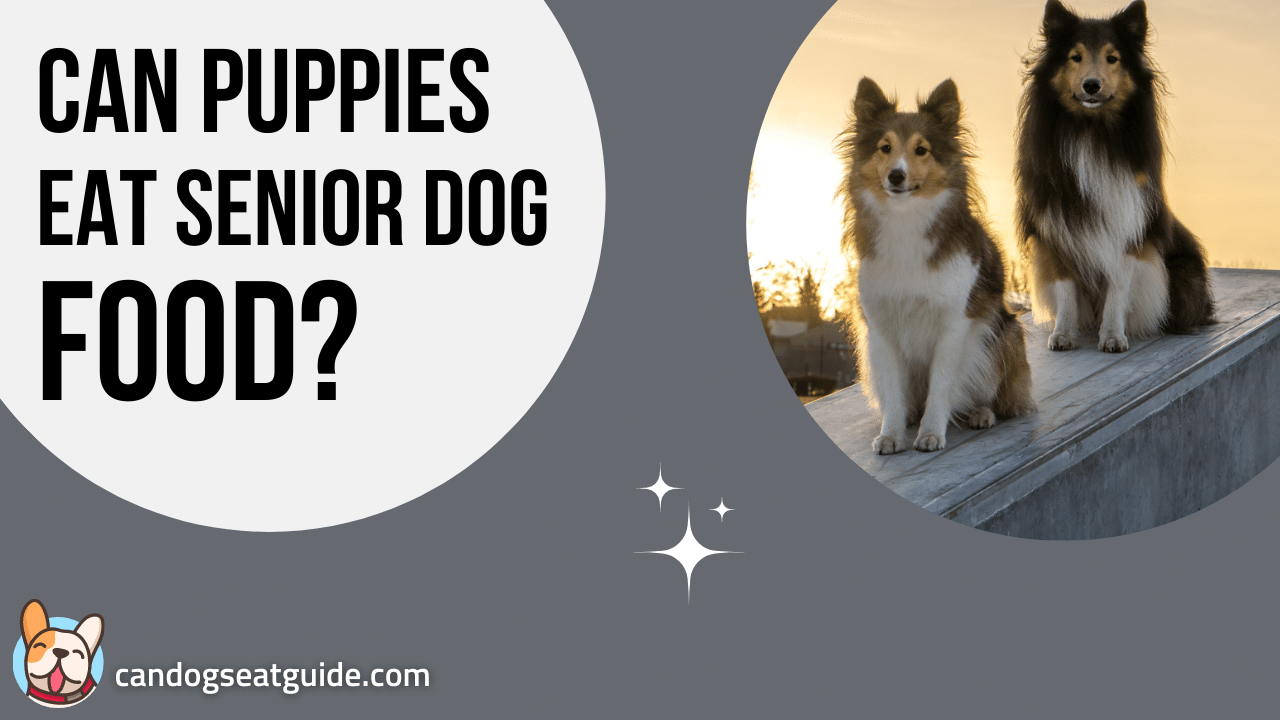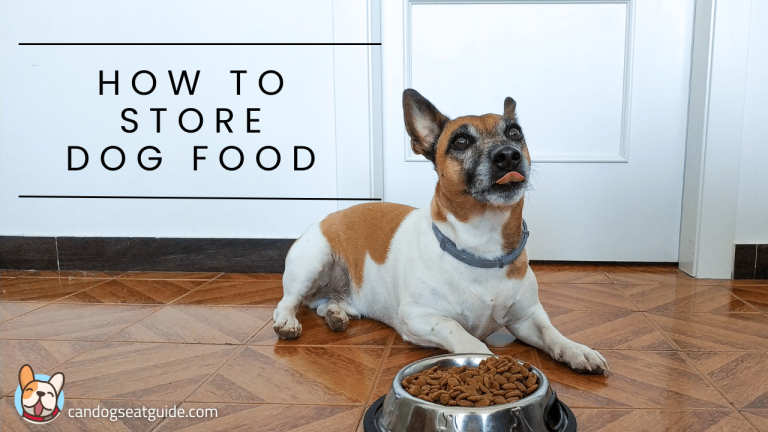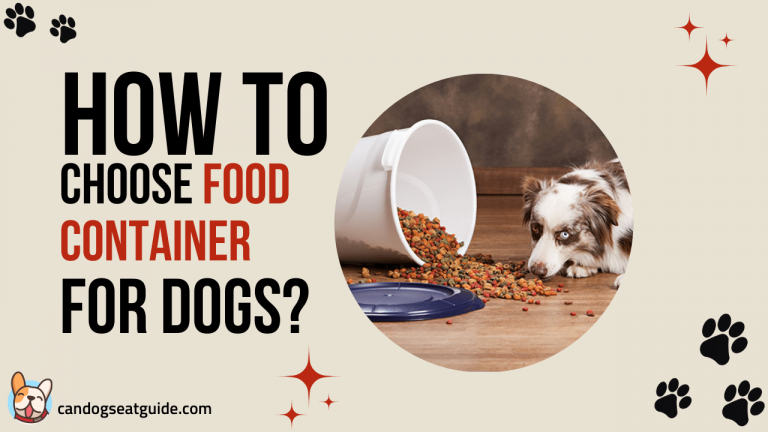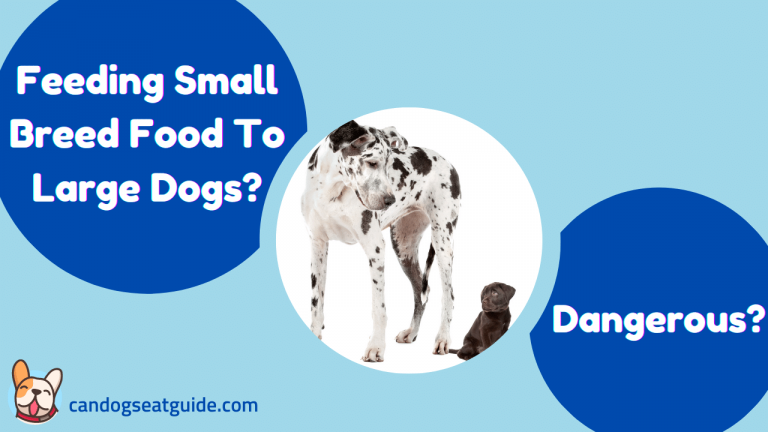Are you having a senior dog and now a puppy? Or vice versa? Do you worry whether can puppies eat senior dog food?
I will start with my favorite phrase but there are reasons companies make different types of foods for puppies, adult dogs, and senior dogs.
Puppies are just starting to grow and develop, and they need a lot of nutrients, while senior dogs are getting older, probably already have some health problems and they need a lot of nutrients.
Both types of dogs need a lot of nutrients, but is it the same type of nutrition?
Let’s find out together. If you don’t know how to choose puppy food, check here. If you are in search of senior dog food, here are our tips.
Nutritional Needs
This time I will not start directly with the answer, as you need to understand the importance of different nutrients and how they are different for puppies and senior dogs.

I know that not everyone has the extra time to check different types of nutrients and how much the dog needs in different stages, you probably don’t know many of the vitamins and minerals dogs need and why they need them.
But that is fine, that’s why there is a vet. The vet knows best what is good for exactly your dog, what more special it needs if it overdoses on nutrients, or if there is some deficiency, for example, iron deficiency.
There are 3 stages of a dog’s life. In the first stage, dogs are called puppies as they are still babies, then they go into the adulthood stage, and they finish their lifespan as senior dogs. In these 3 stages, dogs need all macronutrients that they can get from their food. And this time I don’t talk about some treats from human food like – spinach, tomato, watermelon, or honey, I talk about the food that is specially made for them.
Puppies need all nutrients – some in big amounts, some in small. But the most important nutrients for the growth and proper development of bones and organs are protein, fat, carbohydrates, and calcium.
Now let’s see what amount of these four nutrients a puppy needs and then a senior dog.
Protein for puppy VS Protein for senior dog
The percentage of protein in puppy food shouldn’t be more than 32% and shouldn’t be less than 22%. Puppies need the most protein right after weaning and protein decreases as they are growing. The diapason of 22%-32% is the most optimal and it’s helping a lot for the fast and optimal growth. Protein is needed for the bones, muscles, organs, and joints.
Senior dogs need protein a bit more than puppies because otherwise they will lose their muscle mass and some old dogs can’t walk without help because too many muscles were lost. Seniors need the protein content to be between 28% and 32% of the calorie intake during the day.
Best sources of protein:
Both puppies and senior dogs need a lot of protein but it needs to be of high quality.
The high-quality protein in the meat-based diet can be from chicken, lamb, and beef. For plant-based diets, dogs can get it from soybean – the highest quality – rice, corn, and wheat.
Fat for puppy VS Fat for senior dog
Puppies need a lot of fat as they are in their most active stage of life. Like, have you seen a puppy that is not running around nonstop?

So, puppies need around 10% – 25% of fat in their diets. Again they shouldn’t get less or more than this diapason. It’s accessible only if your vet recommends more or less fat depending on the health of your puppy.
The fat content needed for senior dogs is surprisingly low. They should have at least 8% fat and the most recommended is 12%. Some senior dogs lose a lot of weight in this stage so they usually need a bit more fat content, while others gain a lot and need even less fat. But the ideal diapason is 8% – 12%.
Best sources of fat:
- salmon
- flaxseed
- canola oil
- chicken fat
- pork fat
- vegetable oil
Carbohydrates for puppy VS Carbohydrates for senior dog
Carbohydrates are the source of fast energy, it’s needed. They are also the main source of dietary fiber. And there are two types of this fiber. The soluble fiber helps the normal gut bacteria and is also needed a lot in the diet to prevent constipation. The insoluble fiber reduces gut inflammation.
Puppies need a maximum of 20% of carbs in their diets but they should be easily digested.
Senior dogs need around 50% of their calorie intake to come from carbohydrates.
Best sources of carbohydrates:
- potatoes
- sweet potatoes
- apples
- oats
- wheat
- rice
Calcium for puppy VS Calcium for senior dog
Calcium is very important for the development of bones and teeth.
Puppies need around 1.2% calcium content in their meals. A senior dog needs around 1% calcium.

Best sources of calcium:
Can Puppies Eat Senior Dog Food
Puppies shouldn’t eat senior dog food.
Why?
As senior dogs already don’t have the same energy levels as they had in their young years, they should get fewer calories. Another reason for fewer calories is that their metabolism already can’t work as fast as a puppy one. But puppies need these calories, they are nonstop moving around, and even to keep the same body temperature during the day and night they burn more calories than some senior dogs.
Puppies won’t be able to get the same amount of nutrition their bodies are needing for proper functionality if they are eating senior food.
Can Puppies and Senior Dogs Eat The Same Food?
You can be like didn’t you answer this question already but here I am talking about something else.
You may have noticed that there are some foods on which are written: “for all life stages”. This means they can be eaten by puppies, adult dogs, and senior dogs. They have all the nutrients dogs need during their lifespan.
But how they have decided how much protein, fat, and carbs to put?
You already know the amounts of these nutrients aren’t the same for all dogs. They are maybe the best for adult dogs but not so good for puppies and senior dogs. Brands have put some average amount that will be “fine” during the whole lifespan.
But is that enough good?
I don’t recommend these foods as large breeds and small breeds need different nutrients, then puppies and older dogs need different amounts of nutrients. So it’s not good just to guess if this will be good food or not.
Conclusion
Puppies should eat puppy food and senior dogs should eat the food that is for them. Puppies need to have a balanced diet for the growing phase they are going through a lot of changes in a short period.









